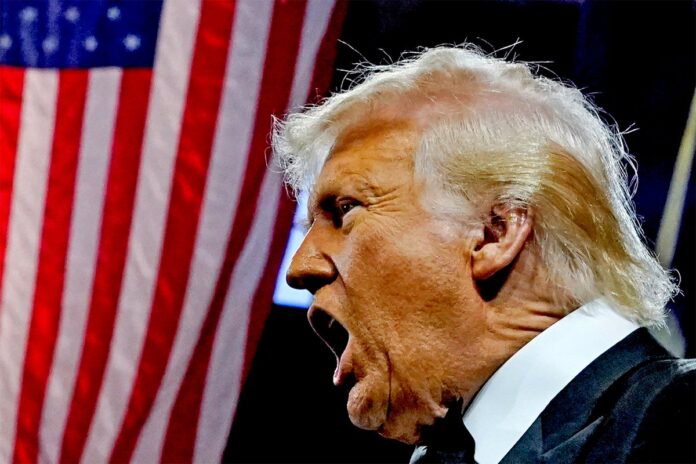Yuan falls to its weakest in almost two decades
China let its yuan fall to its weakest level since December 2007 at 7.3518 per dollar after US president Donald Trump raised the tariff on Chinese imports to 125 per cent.
Prior to market opening, the People’s Bank of China set the midpoint rate, around which the yuan is allowed to trade in a 2 per cent band.
A weaker yuan would make exports cheaper and alleviate some pressure on China’s trade and the broader economy, albeit with risks of unwanted capital outflow.
However, Chinese equity markets opened on a strong note, with CSI300 blue-chip index rising 1.6 per cent, while Hong Kong’s Hang Seng Index jumped 3.3 per cent.
Alisha Rahaman Sarkar10 April 2025 04:46
Ray Dalio calls for US trade deal with China
The founder of the world’s largest hedge fund has called for a US deal with the Chinese on tariffs and said that the next goal for president Donald Trump’s administration should be to cut the country’s deficit to 3 per cent of GDP.
“Trump’s decision to step back from a worse way and negotiate how to deal with these imbalances is a much better way,” Ray Dalio, who helms hedge fund Bridgewater Associates, said in a post on X.
Alisha Rahaman Sarkar10 April 2025 04:32
Asian markets make recovery
Asian stock markets are bouncing back today after US president Donald Trump paused most of his plan for sweeping “reciprocal” tariffs.
- Japan’s Nikkei 225 index surged almost 9 per cent during the opening trade, while the broader Topix index rose 7.44 per cent.
- South Korea’s Kospi index surged 5.36 per cent as the small-cap Kosdaq gained 5.32 per cent.
- China’s CSI 300 rose 1.60 per cent, while Hong Kong’s Hang Seng Index jumped 3.92 per cent.
Alisha Rahaman Sarkar10 April 2025 04:15
Trump dramatically changes course on tariffs with 90-day pause while hiking duties on China to 125%
Donald Trump changed course again on Wednesday and announced a 90-day pause of his so-called “reciprocal” tariffs while hiking other duties on China to 125 percent.
The US president’s decision followed several days of sharp losses on the stock market. In a Truth Social post, Trump claimed that his reversal was a result of what White House officials have claimed are dozens of foreign nations reaching out with the intention of re-negotiating trade policy with the United States, rather than implementing tariffs of their own.
He said on Wednesday afternoon that his decision was made in response to days of market panic and rippling effects across various economic sectors, which Trump and other White House officials spend days unsuccessfully trying to quell.
“I thought that people were jumping a little bit out of line. They were getting yippy, you know, they were getting a little bit yippy, a little bit afraid,” Mr Trump told reporters at a White House event with NASCAR drivers on Wednesday afternoon. “I’ve reversed it. It’s for a short period of time.”
John Bowden and Andrew Feinberg have the full report, from Washington DC:
Alisha Rahaman Sarkar10 April 2025 03:58
